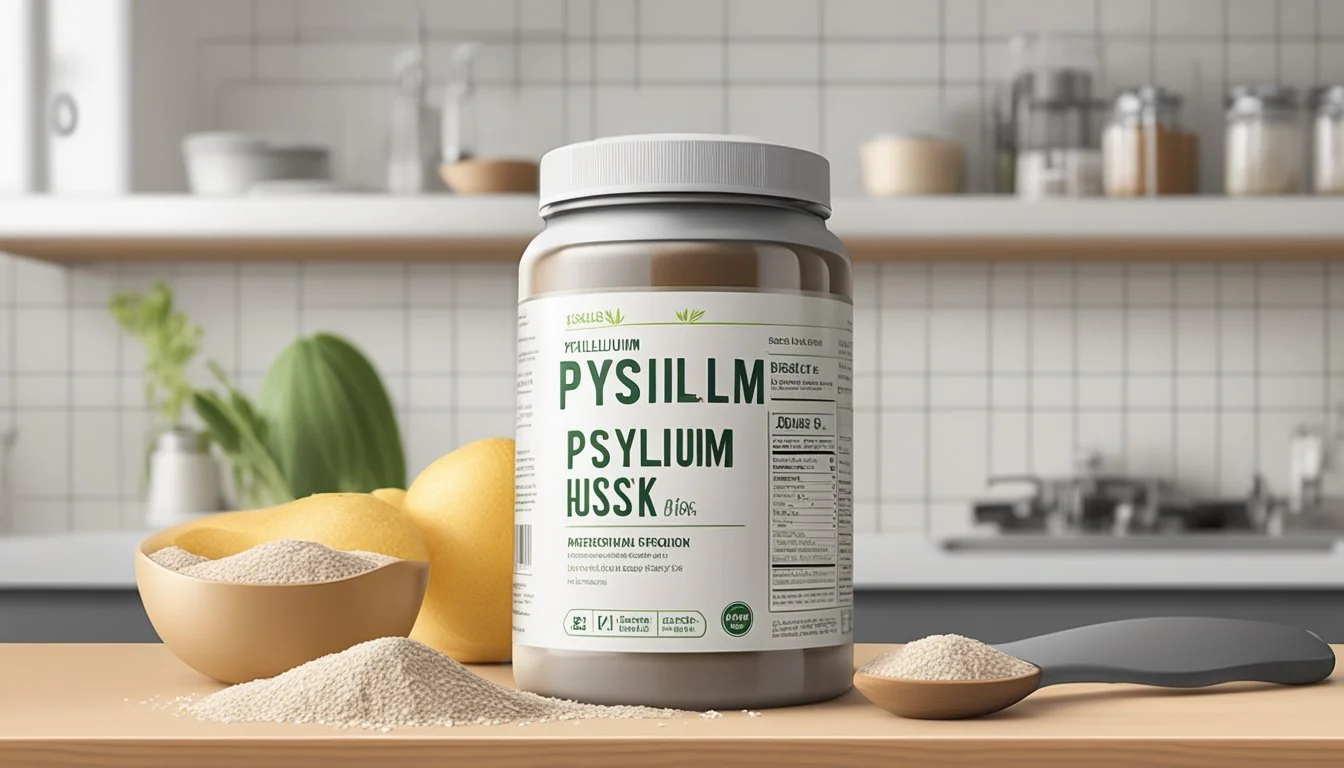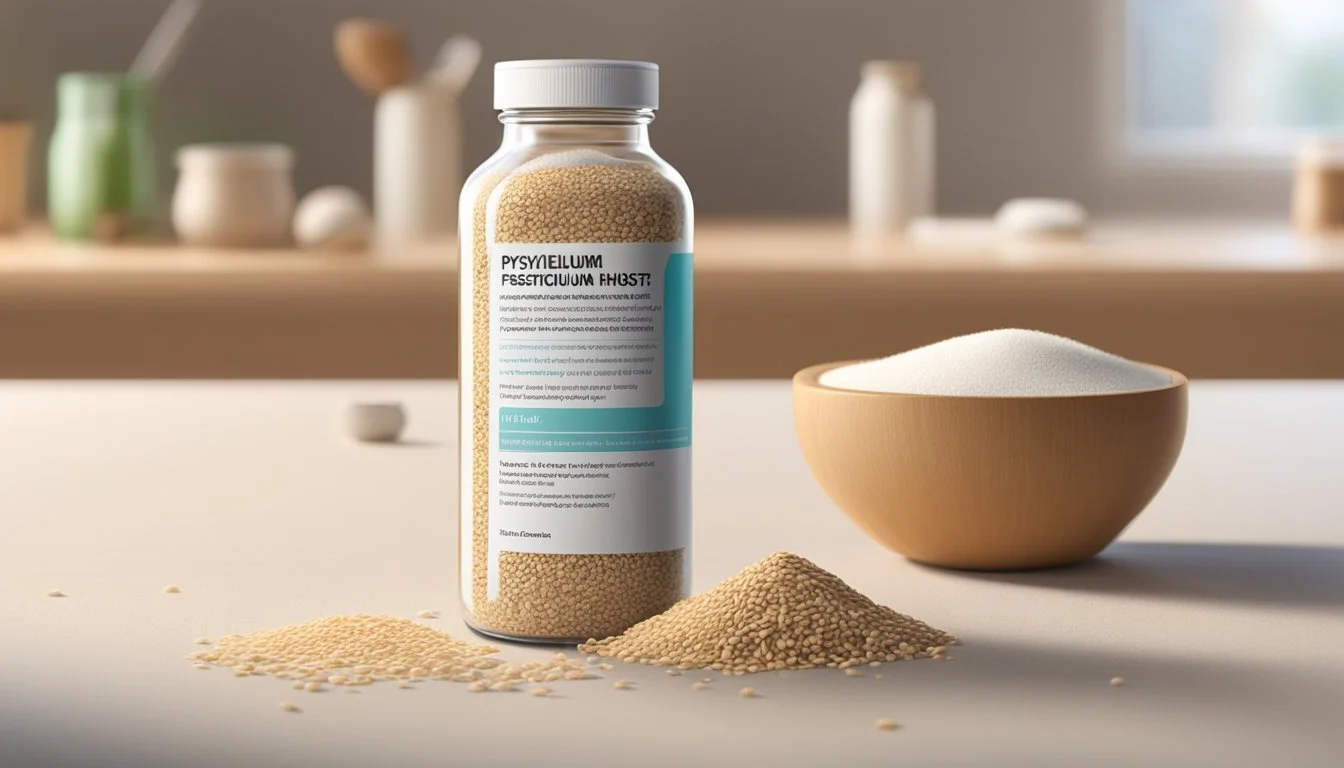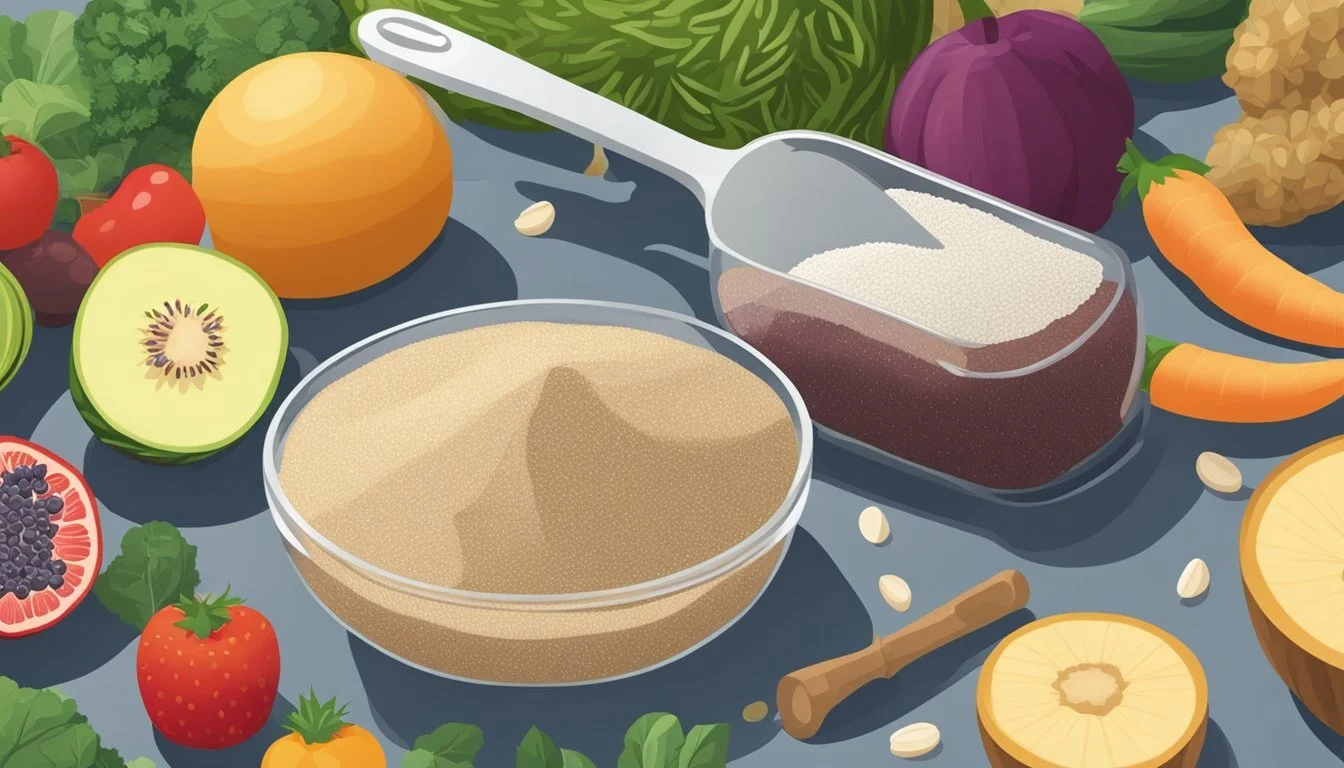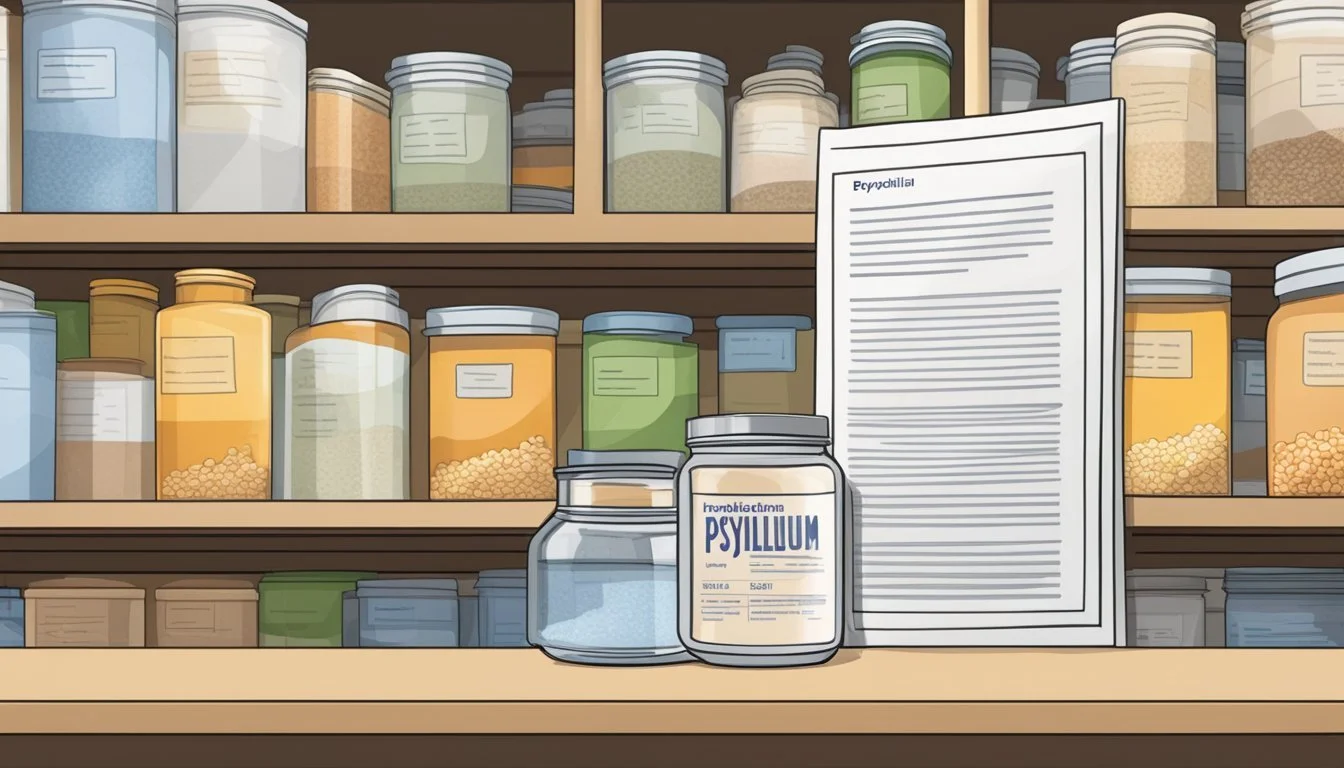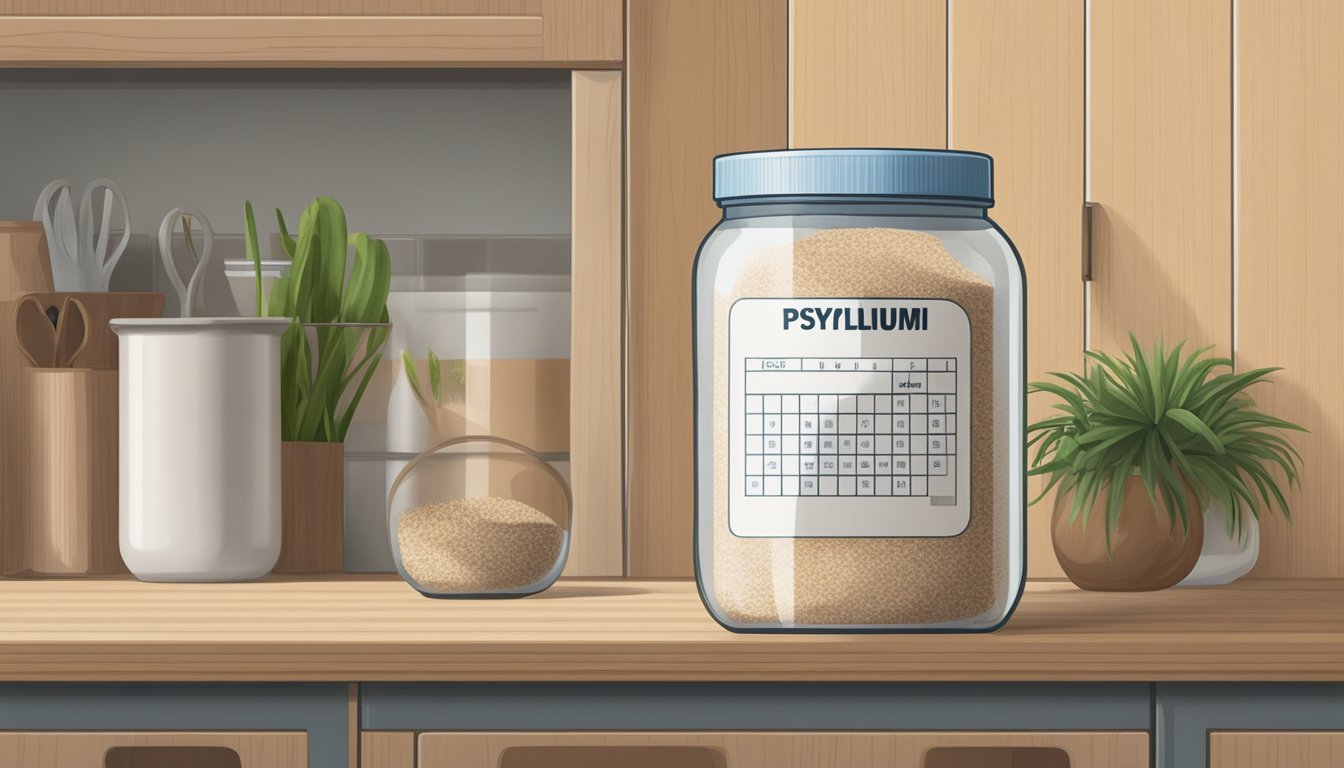How Long Does Psyllium Husk Last?
Shelf Life and Storage Tips
Psyllium husk (how long does psyllium husk last?) is a form of soluble fiber derived from the seeds of the Plantago ovata plant, commonly used as a dietary supplement to aid digestion. As a natural supplement, it absorbs water in the gut and becomes viscous, which benefits gut health by making bowel movements easier. Regular intake of psyllium can contribute to a recommended daily fiber intake, which is crucial for maintaining overall digestive health.
Understanding the longevity of psyllium husk is important for consumers who rely on its health benefits. The shelf life of psyllium husk varies depending on its form. Whole psyllium husk, which is less processed, typically has a longer shelf life, generally lasting for about 2-3 years if stored correctly. On the other hand, ground psyllium husk, which is broken down into smaller pieces, has a somewhat shorter shelf life, lasting around 1-2 years under proper storage conditions.
Proper storage plays a pivotal role in the preservation of psyllium husk’s efficacy and safety. It should be kept in a sealed container to protect it from moisture and humidity, which can spoil the product. While expired psyllium husk may not necessarily be harmful, its effectiveness can diminish over time, and using it beyond its optimal period may lead to reduced health benefits or gastrointestinal discomfort. Thus, it is essential to pay attention to the 'Best Before' date to ensure maximum efficiency and avoid potential issues.
Understanding Psyllium Husk
Psyllium husk, a form of soluble fiber derived from the seeds of Plantago ovata, serves various health-related purposes. When integrated into the diet, it can influence digestive health and more.
What Is Psyllium Husk?
Psyllium husk is the outer coating of the seeds from the Plantago ovata plant, commonly known as ispaghula. This husk is rich in soluble fibers, which absorb water in the gut to form a gel-like substance. It aids in digestion by increasing stool volume and is therefore frequently recommended for relieving constipation.
The presence of soluble fibers also means that psyllium can help lower blood cholesterol levels and manage blood sugar (how long does sugar last?) when taken as part of a balanced diet and consistent health regimen.
Sources and Forms of Psyllium
Psyllium husk comes in various forms, catering to different preferences and uses:
Whole Psyllium Husk: The least processed form that retains most of its natural state.
Psyllium Husk Powder: Finely ground husk for easier consumption and mixing with foods and beverages.
Psyllium Capsules: Convenient, pre-measured doses for those who prefer a pill form over a powder.
Psyllium Wafers and Bran: Available as food products for direct consumption, these may contain psyllium for added fiber content.
Each form stems from the same dietary fiber source and offers the same fundamental benefits, with the choice of form being a matter of personal convenience and preference.
Health Benefits and Uses
Psyllium husk is renowned for its role in promoting digestive health and managing constipation, as well as its potential benefits in controlling blood sugar, cholesterol levels, and body weight.
Psyllium as a Fiber Supplement
Psyllium husk is a popular fiber supplement that is used to increase dietary fiber intake. Its high soluble fiber content helps add bulk to the stool, making it easier to pass and thereby aiding in regular bowel movements. Often found in products like Metamucil, psyllium can help relieve symptoms of constipation.
Impact on Cholesterol Levels
Regular consumption of psyllium husk has been linked to improvements in cholesterol levels. It assists in lowering LDL cholesterol (the "bad" cholesterol) by binding to fat and bile acids in the body, which the body then excretes. This process helps to reduce the risk of heart disease.
Psyllium Husk and Blood Sugar Control
Psyllium is beneficial for individuals managing diabetes; it can aid in blood sugar control. By slowing down digestion, it helps manage blood sugar spikes after meals, contributing to overall glycemic management.
Psyllium's Role in Weight Management
In terms of weight loss and management, psyllium contributes to a sense of fullness or satiety after eating, which may help reduce overall appetite. Additionally, it has a low calorie content, making it a suitable addition to a weight management regimen.
Psyllium for Digestive Health
Psyllium supports intestinal health by acting as a prebiotic, feeding the beneficial bacteria in the gut. This can lead to the production of short-chain fatty acids and may reduce inflammation. It may also alleviate symptoms like bloating and gas, improving overall digestive system function.
Proper Usage and Dosage
When incorporating psyllium husk into one's diet, understanding the correct way to take it and the recommended dosage is crucial for safety and effectiveness.
How to Take Psyllium Husk
Psyllium husk can be taken in various forms, including powder, capsules, or wafers. It is essential to mix psyllium husk powder with at least 8 ounces of water or another liquid. This liquid helps the psyllium husk swell and form a gel-like mass, aiding in smooth passage through the digestive system. Following the intake of psyllium husk with another glass of water is advisable to ensure proper hydration.
Recommended Dosage
The dosage of psyllium husk may vary based on individual health goals and a doctor's advice. Adults could typically start with a dose of 5 grams once a day, with a gradual increase as needed, not exceeding 10-20 grams per day, split into multiple doses. For children over 6, the dosage should be lower, and a healthcare provider should be consulted to determine the appropriate dose. It is important to start with smaller amounts to assess tolerance. Precautions should be taken for individuals with any pre-existing medical conditions or those on medications, as they should always consult with their healthcare provider before starting psyllium husk or any dietary supplement.
Potential Side Effects and Interactions
While Psyllium husk is largely regarded as safe for consumption, it is vital that consumers are aware of its potential side effects and interactions with medications. Adverse effects can range from mild gastrointestinal issues to severe allergic reactions.
Common Adverse Effects
Diarrhea: Though psyllium is typically used to treat constipation, it can sometimes lead to diarrhea if taken in large doses.
Nausea and Abdominal Pain: These are common side effects that may occur, especially when psyllium is consumed without adequate water.
Allergic Reactions
Rash and Itching: Some individuals may develop a rash or experience itching as a reaction to psyllium.
Swelling and Choking: In cases of severe allergies, symptoms may include swelling, possibly leading to choking. Urgent medical attention is necessary if such symptoms occur.
Vomiting: As part of an allergic response, some individuals may experience vomiting.
Medication Interactions
Lithium: Psyllium can affect the absorption of lithium, a medication used for treating bipolar disorder. Monitoring by a healthcare provider is recommended.
Digoxin: Similarly, if taken with digoxin, used for heart conditions, psyllium may interfere with the drug's absorption, potentially necessitating an adjustment of dosage.
Storing Psyllium Husk
When it comes to storing psyllium husk, maintaining its quality hinges on avoiding moisture and light exposure. Proper storage extends the shelf life, ensuring the husk retains its efficacy.
Optimal Storage Conditions
To preserve the quality of psyllium husk, one should store it in a cool, dry place. This means ensuring that the storage environment is below room temperature and has a low humidity level. Containers should be airtight to prevent exposure to air and moisture, both of which can degrade the husk. It is also important to protect psyllium husk from direct sunlight and other sources of light that could diminish its potency over time.
Temperature: Below room temperature
Humidity: Low humidity levels
Container: Airtight, to reduce air and moisture contact
Light: Store away from direct sunlight and sources of light
Shelf Life and Expiration
The shelf life of psyllium husk can last up to two years under optimal storage conditions. After opening, it is crucial to reseal the packaging to maintain its freshness. Checking the expiration date on the packaging is imperative as it serves as a guide to determine how long the husk can be expected to retain its quality. Once past the expiration date, psyllium husk may not be harmful, but there is a potential for reduced effectiveness, and it could cause gastrointestinal disturbances.
Shelf Life: Up to two years
Expiration Date: Always consult the "Best Before" date
Post-Opening: Reseal properly after each use to retain freshness
Quality After Expiration: Possible decrease in efficacy; gastrointestinal disturbances may occur
Considerations for Specific Groups
When incorporating psyllium husk into the diet, individuals with specific health conditions should consider how it may affect their symptoms and health goals. Personal health status can influence the interaction with dietary fibers like psyllium husk.
Psyllium Husk and IBS
For those suffering from irritable bowel syndrome (IBS), psyllium husk may be beneficial. It can help regulate bowel movements, alleviating both constipation and diarrhea. Psyllium is a bulk-forming laxative, which means it soaks up water in the gut and makes bowel movements much easier. It's important to start with a lower dose to assess tolerance and then gradually increase as needed.
Heart Health and Blood Pressure
Individuals concerned with heart health may find psyllium husk useful due to its potential to assist in managing blood pressure and cholesterol levels. Psyllium is known to bind to fat and bile acids, which promotes the excretion of cholesterol from the body. This process can lead to a reduction in low-density lipoprotein (LDL), commonly referred to as 'bad' cholesterol, which is a risk factor for heart disease.
Diabetic Patients and Psyllium
For patients with type 2 diabetes, integrating psyllium husk in their diet could help in the management of glucose levels. The soluble fiber in psyllium can help slow down the digestion of food, which aids in stabilizing fasting blood sugar levels. Consistent blood sugar control is crucial for diabetics to manage their condition and prevent complications. It is recommended to take psyllium alongside meals to optimize the effect on blood sugar.
Integrating Psyllium into the Diet
Introducing psyllium into one's diet can contribute positively to digestive health, as it's a rich source of dietary fiber. Proper usage can aid in managing cholesterol levels, diabetes, and digestive concerns such as constipation.
Dietary Sources of Psyllium
Psyllium is obtained principally from the seed husks of the Plantago ovata plant. It is available in various forms:
Whole psyllium husk: The most natural form, containing both soluble and insoluble fiber.
Psyllium powder: Finely ground psyllium husks, which mix more readily with liquids.
Psyllium capsules: Convenient for those on-the-go or for precise dosage.
One treads carefully when selecting psyllium products, ensuring they are free from added sugars and artificial additives that may counteract psyllium's health benefits.
Incorporating Psyllium in Daily Routine
To weave psyllium seamlessly into daily life:
Start Slow: Begin with a small dose to allow the gut to adjust, and gradually increase to the recommended intake.
Hydrate: Combine psyllium with ample water to aid in its absorption and prevent bloating or blockages in the intestines.
Meal Times: Incorporate psyllium into meals, such as adding to oatmeal, yogurt, or smoothies, for an additional fiber boost.
Baking and Cooking: Utilize psyllium as a thickening agent in soups and as a binding agent in gluten-free baking.
Individuals on a ketogenic diet often integrate psyllium as a fiber supplement to prevent constipation without adding extra carbohydrates. They should always ensure to take it with enough water and might want to monitor their waist circumference to assess for any bloating. Those with diabetes may find psyllium helpful in managing blood sugar levels due to its slow absorption rate, which aids in moderating sugar spikes after meals.
It is paramount for individuals on medication to consult with a healthcare provider before introducing psyllium, as it can affect the absorption and effectiveness of certain drugs. Consistent and correct incorporation of psyllium into one's diet can contribute to better digestion, gut health, and overall wellness.
Psyllium Husk and Legal Status
Psyllium husk is subject to regulatory oversight to ensure its safety and efficacy when used as a dietary supplement. The legal status of psyllium husk primarily falls under the jurisdiction of the Food and Drug Administration (FDA), which provides guidelines and regulations affecting its use and labeling.
FDA Regulations and Guidelines
The FDA regulates dietary supplements such as psyllium husk under a different set of regulations than those covering prescription or over-the-counter medications. Manufacturers are required to ensure the safety of their products and that any claims made about them are not misleading. Specifically for psyllium husk, the FDA allows certain health claims regarding its role in reducing the risk of heart disease, primarily due to its ability to lower blood cholesterol.
Healthcare providers may recommend psyllium husk for its health benefits, but the substance does not have the same rigorous approval process as pharmaceuticals. However, the FDA still oversees the marketing and manufacturing practices, including:
Labeling requirements
Good Manufacturing Practices (GMP) compliance
Adverse event reporting
Consumers are advised to consult with a healthcare provider before starting any new supplement regimen, including psyllium husk, to ensure it aligns with individual health needs and to understand proper dosing.
Final Thoughts
Psyllium husk, as a natural dietary supplement, offers numerous health benefits while requiring certain precautions. This section summarizes the essential aspects of psyllium husk's impact on health and nutrition.
Summary of Psyllium Husk's Benefits and Considerations
Psyllium husk is a form of soluble fiber known for its role as a bulk-forming laxative, promoting digestive health and regularity. Its gentle nature makes it a preferred choice for individuals seeking to enhance their dietary fiber intake. The health benefits of psyllium include its ability to aid in lowering cholesterol levels, managing blood sugar, and promoting satiety, which can be beneficial for weight management.
However, while integrating psyllium into one's diet, it's important to proceed with care. Users should start with smaller amounts to assess tolerance and avoid potential side effects like gastrointestinal discomfort. Consuming an adequate amount of water with psyllium is crucial to prevent it from swelling and causing obstruction in the gut.
Individuals should consider consulting a doctor or a qualified nutrition professional before starting any natural supplement, including psyllium, especially if they have pre-existing health conditions or are on medication.
Storage and shelf life are practical considerations. Psyllium husk can last for 2-3 years if whole and 1-2 years if ground, provided it's stored in a cool, dry place in a sealed container, safeguarding its quality and efficacy.
By adopting these precautions and understanding psyllium husk's benefits, users can safely incorporate this dietary supplement into their health regime.
References
The information regarding the shelf life of psyllium husk is based on various sources that provide insights into its storage and lifespan. The references used to gather this information include:
Healthly Connected posted a piece written by Yvette Brown on August 6, 2022, emphasizing the importance of dietary fiber and confirming that psyllium husk does indeed expire.
An article titled "Essentials of Psyllium Husk Longevity and Use" from Iupilon outlines the shelf life of psyllium husk, suggesting it can last up to two years when properly stored, also noting the impact of factors like manufacturing methods and packaging.
AskYourPharm addresses the safety of consuming expired psyllium husk, detailing the potential gastrointestinal disturbances that may arise despite the lack of direct harm from the expired fiber.
Health Connections also provides a general statement on the shelf life and quality degradation of psyllium husk over time, specifically differentiating between whole and ground forms.
The table below summarizes the storage life expectancy mentioned in the sources:
Form of Psyllium Husk Expected Shelf Life Whole Psyllium Husk 2 - 3 years Ground Psyllium Husk 1 - 2 years
These references collectively inform the guidance provided on the longevity of psyllium husk and the importance of proper storage to maintain its efficaciousness.
About the Author
The author of this article is a respected health and nutrition expert with a background in food science and dietetics. With a dedication to providing evidence-based information, the author has spent several years researching dietary fibers and their impact on digestive health.
Expertise: Health and Nutrition, Food Science
Education: Degree in Dietetics and Food Science
Experience: 5+ years in nutrition research and communication
She is known for her clear and concise writing style, aiming to make complex nutritional information accessible to the general public. Her work is driven by a passion for educating people about the benefits of incorporating healthy food choices into their daily lives.
In writing about Psyllium husk, the author has meticulously reviewed scientific studies and consulted with industry peers to ensure the accuracy of the information provided. Their approach is always thorough, impartial, and keeping up with the latest findings in the field of nutrition.



